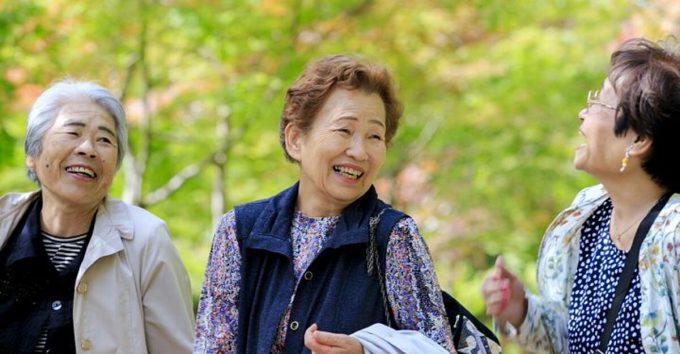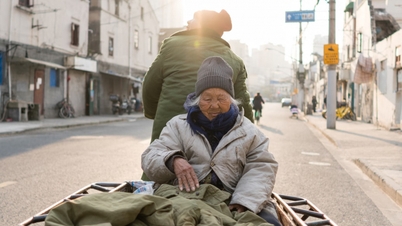People in Blue Zones do not skip breakfast, drink coffee every day, speak kind words often and find meaning in life.
Currently, the longest-lived person on the planet is 118 years old. However, according to research, humans can theoretically live up to 150 years. Changing your lifestyle directly affects your longevity. Dan Buettner, a researcher on Blue Zones (longevity zones) around the world , has pointed out some morning habits of people here that help increase their life expectancy to over 100.
Find your 'ikigai'
One of the reasons why people in the blue zone of Okinawa, Japan live longer than the rest of the world is their belief in the philosophy of ikigai. In Japanese, ikiru means “to live” and gai means “reason.” In other words, ikigai is “a reason to live” or “a reason to wake up in the morning.”
This ideology dates back to the Heian period (AD 794-1185), but it has only been in the last decade that it has gained attention from millions of people around the world. Ikigai is the combination of four elements: what a person loves, what they are good at, what they can make money from, and what society needs.
In studies of longevity, experts say finding meaning in life is just as important as factors like genetics, diet or exercise.
A 2008 study from Tohoku University analyzed data from more than 50,000 people (ages 40 to 79) and found that those who lived by the philosophy of ikigai had a lower risk of cardiovascular disease and mortality. 95% of them were still alive seven years after the survey began.
Don't skip breakfast
A healthy diet is an important part of longevity. According to Dr. Buettner, following a nutritious eating plan, such as the Mediterranean diet, can promote a long, healthy life. At the core of this plan is breakfast—the most important meal of the day.
A 105-year-old woman in Loma Linda, California, says she always starts her day with a bowl of slow-cooked oatmeal, topped with fiber-packed dates, walnuts, and a little protein-packed soy milk.
Many studies show that people who eat breakfast tend to be healthier, less likely to be overweight or obese, and less likely to suffer from certain chronic diseases than those who do not have this habit.
Skipping breakfast will cause hunger pangs, low blood pressure, nausea, and in the long run will cause serious damage to the digestive system such as stomach pain. The stomach is always contracting, gastric juice is secreted but there is nothing to digest, over time it will cause stomach ulcers, leading to a decline in the body's immune system. Being hungry also makes it impossible for you to concentrate, affecting work performance.

Japan is one of the countries with the highest life expectancy in the world. Photo: Cotavic
Have a cup of coffee in the morning
According to the American Heart Association, drinking coffee (both caffeinated and uncaffeinated) reduces the risk of overall death. Experts recommend drinking coffee with a splash of milk and a spoonful of sugar. You can also opt for nut milks like almond milk, oat milk, or walnut milk.
Coffee is rich in essential nutrients like vitamin B5 (creates red blood cells), manganese (bone growth and metabolism), potassium (lowers blood pressure), magnesium (energy production, improves sleep), and niacin (helps convert vitamins into energy).
Overall, moderate coffee consumption may reduce the risk of type 2 diabetes, depression, neurodegenerative diseases, cancer, and liver disease.
Coffee is a popular drink in the Blue Zone of Ikaria. Here, people grind the beans very finely and boil them, similar to Turkish coffee. This process releases antioxidants. People in the Blue Zone of Sardinia also choose to start their mornings with a cup of coffee.
Say nice things
Aside from diet and lifestyle, Blue Zone residents often start their mornings by complimenting others, literally.
“Say something nice to the first person you meet,” says Sarah Wilson, an Australian journalist who specializes in longevity.
Research from Harvard University shows that good behavior is contagious, having a positive impact on your mental health and the health of those around you.
In a study published in the Journal of the American Geriatrics Society in 2022, Harvard University experts found a link between optimism and longevity (90 years and older). Scientists followed nearly 160,000 women aged 50 to 79 for 26 years. Volunteers were asked to fill out a questionnaire, and their optimism was ranked by score.
The results showed that women with high levels of optimism lived longer, more likely to reach their 90s than those with low levels of optimism. The results remained the same after the experts took into account factors such as education, economic status and ethnicity.
Research published in the Proceedings of the National Academy of Sciences (PNAS) found that optimists live 11% to 15% longer than pessimists.
Thuc Linh (According to Well and Good )
Source link


![[Photo] Journalists moved to tears at the Memorial Service for the soldiers who died in Gac Ma](https://vphoto.vietnam.vn/thumb/1200x675/vietnam/resource/IMAGE/2025/5/30/9454613a55c54c16bf8c0efa51883456)
![[Photo] National Conference "100 years of Vietnamese Revolutionary Press accompanying the glorious cause of the Party and the nation"](https://vphoto.vietnam.vn/thumb/1200x675/vietnam/resource/IMAGE/2025/5/30/1cf6cd5c8a934ebfa347028dcb08358c)


![[Photo] A delegation of 100 journalists from the Vietnam Journalists Association visits the soldiers and people of Truong Sa island district.](https://vphoto.vietnam.vn/thumb/1200x675/vietnam/resource/IMAGE/2025/5/30/0984a986227d4e988177f560d2e1563e)
![[Photo] General Secretary To Lam receives Chief of the Central Office of the Lao People's Revolutionary Party](https://vphoto.vietnam.vn/thumb/1200x675/vietnam/resource/IMAGE/2025/5/30/140435f4b39d4599a3d17975dfb444c5)



























































































Comment (0)